| Listing 1 - 10 of 13 | << page >> |
Sort by
|
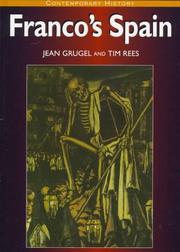
ISBN: 0340561696 0340663235 Year: 1997 Volume: *2 Publisher: London New York Sydney Arnold
Abstract | Keywords | Export | Availability | Bookmark
 Loading...
Loading...Choose an application
- Reference Manager
- EndNote
- RefWorks (Direct export to RefWorks)
Franco-Regime --- Francoism --- Franquisme --- Spain --- Espagne --- Politics and government --- Politique et gouvernement --- 1939-1975 --- Spain - Politics and government - 1939-1975.
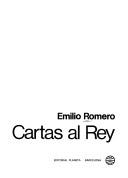
ISBN: 8432056022 9788432056024 Year: 1973 Volume: 2 Publisher: Barcelona: Planeta,
Abstract | Keywords | Export | Availability | Bookmark
 Loading...
Loading...Choose an application
- Reference Manager
- EndNote
- RefWorks (Direct export to RefWorks)
Juan Carlos --- Spain --- Politics and government --- Juan Carlos - I, - King of Spain, - 1938 --- -Spain - Politics and government - 1939-1975 --- -Spain
Book
ISBN: 9782753550476 9782753550476 2753550476 Year: 2016 Publisher: Rennes: Presses universitaires de Rennes,
Abstract | Keywords | Export | Availability | Bookmark
 Loading...
Loading...Choose an application
- Reference Manager
- EndNote
- RefWorks (Direct export to RefWorks)
Le régime du général Franco fut l'un des plus long règnes personnels de l'histoire de l'Espagne. Le dictateur, qui bâtit son régime sur les ruines de la IIe République après une effroyable guerre civile, conserva le pouvoir pendant 36 ans, 7 mois et 20 jours. Comment expliquer une telle longévité ? Comment expliquer la présence à la tête de l'Etat espagnol de ce général que rien ne prédestinait à un tel avenir, qui ne se reconnaît dans aucune des idéologies apparues au XXe siècle, qui n'en impose ni physiquement ni intellectuellement, qui n'a aucun charisme, aucun talent d'orateur, et que l'on dit réservé, voire timide ? Comment expliquer la mise en oeuvre, sous son autorité, dans tous les domaines de la vie nationale, d'une conception de l'Etat qui ne repose que sur une admiration indéfectible pour l'Espagne impériale et sur la volonté de ne jamais restituer le pouvoir qu'il considérait devoir lui revenir après l'avoir conquis sur le champ de bataille ? Cet ouvrage propose de répondre à ces questions en étudiant la dictature du général Franco pour ce qu'elle est aux yeux de l'Histoire : une longue dictature personnelle qui ne cessa, pour survivre, et au moyen d'une instrumentalisation permanente de la violence et de la division, de s'adapter à l'évolution de la population espagnole et du monde au point de rendre possible une mutation en profondeur d'un pays qui, au moment de la mort du dictateur en 1975, n'est plus celui sur lequel il s'apprêtait à régner en 1939, lorsque sa victoire sur l'armée républicaine lui permit d'occuper la totalité du territoire et de confisquer à son profit les structures de l'Etat.
Espagne -- 1939-1975 (F. Franco) --- Franco, Francisco, --- Spain --- Politics and government --- Espagne --- History --- Histoire --- Franco, Francisco, - 1892-1975 --- Spain - Politics and government - 1939-1975
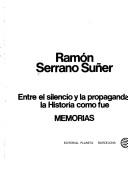
ISBN: 8432056359 9788432056352 Year: 1977 Volume: 35 Publisher: Barcelona: Planeta,
Abstract | Keywords | Export | Availability | Bookmark
 Loading...
Loading...Choose an application
- Reference Manager
- EndNote
- RefWorks (Direct export to RefWorks)
History of Spain --- Statesmen --- Biography --- Serrano Suñer, Ramón, --- Spain --- Politics and government --- Biography. --- Serrano Suñer, Ramón, --- Statesmen - Spain - Biography --- Serrano Suñer, Ramón, - 1901 --- -Spain - Politics and government - 1939-1975 --- -Spain
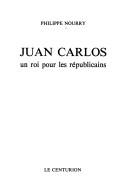
ISBN: 2227007001 9782227007000 Year: 1986 Publisher: Paris: Le Centurion,
Abstract | Keywords | Export | Availability | Bookmark
 Loading...
Loading...Choose an application
- Reference Manager
- EndNote
- RefWorks (Direct export to RefWorks)
Juan Carlos I [King of Spain] --- Juan Carlos --- Spain --- Politics and government --- Politics and Government --- Juan Carlos - I, - King of Spain, - 1938 --- -Spain - Politics and government - 1939-1975 --- Spain - Politics and Government - 1975 --- -Juan Carlos I [King of Spain] --- -Spain
Book
ISBN: 2020048825 9782020048828 Year: 1978 Publisher: Paris: Seuil,
Abstract | Keywords | Export | Availability | Bookmark
 Loading...
Loading...Choose an application
- Reference Manager
- EndNote
- RefWorks (Direct export to RefWorks)
Communistes --- Écrivains espagnols --- Biographies. --- Semprún, Jorge --- Espagne --- Politique et gouvernement --- Authors, Spanish --- Communists --- Semprún, Jorge, --- Political activity --- Spain --- Politics and government --- Écrivains espagnols --- Semprún, Jorge --- Authors, Spanish - 20th century - Biography --- Communists - Spain - Biography --- Semprún, Jorge, - 1923-2011 --- Semprún, Jorge, - 1923-2011 - Political activity --- Spain - Politics and government - 1939-1975
Book
ISBN: 0674436288 0674436296 Year: 1979 Publisher: Harvard University Press
Abstract | Keywords | Export | Availability | Bookmark
 Loading...
Loading...Choose an application
- Reference Manager
- EndNote
- RefWorks (Direct export to RefWorks)
Auswanderung. --- Political refugees. --- Political science. --- Politieke vluchtelingen. --- Politik. --- Refugees. --- Spaanse burgeroorlog. --- Spanischer Bürgerkrieg. --- Spanjaarden. --- France -- History -- 20th century. --- Political refugees -- France. --- Political refugees -- Spain. --- Spain -- History -- Civil War, 1936-1939 -- Refugees. --- Spain -- Politics and government -- 1939-1975. --- HISTORY / General. --- Displaced persons --- Persons --- Aliens --- Deportees --- Exiles --- Administration --- Civil government --- Commonwealth, The --- Government --- Political theory --- Political thought --- Politics --- Science, Political --- Social sciences --- State, The --- Asylum seekers --- Refugees, Political --- Refugees
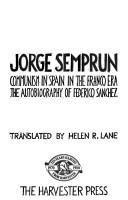
ISBN: 0855275081 9780855275082 Year: 1978 Publisher: Hassocks: Harvester press,
Abstract | Keywords | Export | Availability | Bookmark
 Loading...
Loading...Choose an application
- Reference Manager
- EndNote
- RefWorks (Direct export to RefWorks)
Legal theory and methods. Philosophy of law --- Authors, Spanish --- Communists --- Biography --- Semprún, Jorge --- Political activity --- Spain --- Politics and government --- 340.12 <41> --- Natuurrecht. Rechtsfilosofie --(algemeen)--Verenigd Koninkrijk van Groot-Brittannië en Noord-Ierland --- 340.12 <41> Natuurrecht. Rechtsfilosofie --(algemeen)--Verenigd Koninkrijk van Groot-Brittannië en Noord-Ierland --- Semprun, Ḥorheh --- Semprún y Maura, Jorge --- Maura, Jorge Semprún y --- Semproun, Chorche --- סמפרון, חורחה --- Semprún Maura, Jorge --- Sánchez, Federico, --- Political activity. --- Authors, Spanish - 20th century - Biography --- Communists - Spain - Biography --- Semprún, Jorge - Political activity --- Spain - Politics and government - 1939-1975
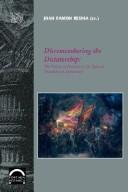
ISBN: 9042013524 9789042013520 9789004483224 9004483225 Year: 2000 Volume: 8 Publisher: Amsterdam : Rodopi,
Abstract | Keywords | Export | Availability | Bookmark
 Loading...
Loading...Choose an application
- Reference Manager
- EndNote
- RefWorks (Direct export to RefWorks)
Most accounts of the Spanish transition to democracy have been celebratory exercises at the service of a stabilizing rather than a critical project of far-reaching reform. As one of the essays in this volume puts it, the “pact of oblivion,” which characterized the Spanish transition to democracy, curtailed any serious attempt to address the legacies of authoritarianism that the new democracy inherited from the Franco era. As a result, those legacies pervaded public discourse even in newly created organs of opinion. As another contributor argues, the Transition was based on the erasure of memory and the invention of a new political tradition. On the other hand, memory and its etiolation have been an object of reflection for a number of film directors and fiction writers, who have probed the return of the repressed under spectral conditions. Above all, this book strives to present memory as a performative exercise of democratic agents and an open field for encounters with different, possibly divergent, and necessarily fragmented recollections. The pact of the Transition could not entirely disguise the naturalization of a society made of winners and losers, nor could it ensure the consolidation of amnesia by political agents and by the tools that create hegemony by shaping opinion. Spanish society is haunted by the specters of a past it has tried to surmount by denying it. It seems unlikely that it can rid itself of its ghosts without in the process undermining the democracy it sought to legitimate through the erasure of memories and the drowning of witnesses' voices in the cacaphony of triumphant modernization.
Spanish literature --- Thematology --- History of Spain --- anno 1980-1989 --- anno 1970-1979 --- anno 1990-1999 --- Memory --- Spain --- Social aspects --- History and criticism --- Politics and government --- Public opinion --- History --- #KVHA:Geschiedenis; Spanje --- #KVHA:Politiek; Spanje --- Historiography --- Retention (Psychology) --- Intellect --- Psychology --- Thought and thinking --- Comprehension --- Executive functions (Neuropsychology) --- Mnemonics --- Perseveration (Psychology) --- Reproduction (Psychology) --- Historical criticism --- Authorship --- Criticism --- Memory - Social aspects - Spain --- Spanish literature - 20th century - History and criticism --- Spain - Politics and government - 1975- - Public opinion --- Spain - Politics and government - 1939-1975 - Public opinion --- Spain - History - 1939-1975
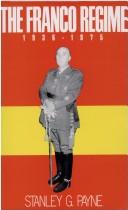
ISBN: 0299110702 9780299110703 Year: 1987 Publisher: Madison (Wis.): University of Wisconsin press,
Abstract | Keywords | Export | Availability | Bookmark
 Loading...
Loading...Choose an application
- Reference Manager
- EndNote
- RefWorks (Direct export to RefWorks)
946.088.3 --- Francoism --- 946.088.3 Geschiedenis van Spanje: Franco; fascisme--(1936-1975) --- Geschiedenis van Spanje: Franco; fascisme--(1936-1975) --- Spain --- -Spain --- -Politics and government --- -Francoism --- Politics and government --- Franquisme --- Franco, Francisco, --- Espagne --- Politique et gouvernement --- -Espanja --- Spanien --- Hiszpania --- Spanish State --- España --- Estado Español --- Hispania --- Sefarad --- Sepharad --- Shpanye --- Shpanie --- Reino de España --- Kingdom of Spain --- Reino d'Espanya --- Reinu d'España --- Espainiako Erresuma --- Regne d'Espanya --- Reiaume d'Espanha --- Espanya --- Espanha --- スペイン --- Supein --- イスパニア --- Isupania --- Spain - Politics and government - 1939-1975 --- Spain - Politics and government - 1931-1939
| Listing 1 - 10 of 13 | << page >> |
Sort by
|

 Search
Search Feedback
Feedback About UniCat
About UniCat  Help
Help News
News